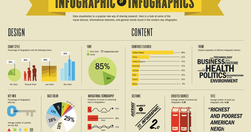Overview: Online Architecture
Probably the most common reason organisations contact me is to get help with their internal and external information architecture.
I usually find, however, that they first need to find a clear consensus on their communication strategy, content strategy and online strategy. Once that's done, I deliver a document which both you and your developers can understand, including some or all of the following:
- highly detailed sitemaps: internal intranets, external websites, knowledgebases, and the information flows between them
- mission statements for principal site chapters, features and content types
- business requirements for any revised or new features
- wireframes, allowing both you and your developers to envision how the result will look.
The aim is to deliver something detailed enough for professional developers and designers to give you a concrete quote, but not so technical that noone else understands what they're building.
I can then work with them to deliver it, or assemble a team and manage the site build for you.
Check out some of my firsts and best practices, or just get in touch.
More services: start with Communication strategy.
Relevant resources

we found that there were four ways the original disputed flags experience could be improved... Disputed flags buried critical information ... could sometimes backfire... Requiring two false ratings slowed down our ability to provide additional context and often meant that we weren’t able to do so at all.... We only applied Disputed flags to “fa…

"... infographics are often taken at face value... And it is hard to fact check infographics... Fast Company republished 10 facts from Buffer. Fact checking one of the facts in that list went like this: The fact quoted an infographic -> that quoted a blog post at Huffington Post -> which in turn quoted another infographic -> which quoted a blog…

"the system ... counts the number of incorrect facts within a page ... by tapping into the Knowledge Vault, the vast store of facts that Google has pulled off the internet. Facts the web unanimously agrees on are considered a reasonable proxy for truth. Web pages that contain contradictory information are bumped down the rankings." - Google wan…